
THREAD: g summit
LifeLine™ Media threads use our sophisticated algorithms to construct a thread around any topic you want, providing you with a detailed timeline, analysis, and related articles.
News Timeline

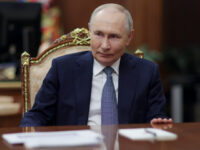
PUTIN’S Bold Peace Plan: Brics And North Korea In Ukraine Talks?
— Russian President Vladimir PUTIN has proposed a fresh approach to peace talks in Ukraine, suggesting the expanded BRICS group play a role. This collective now includes Egypt, Iran, UAE, and Ethiopia. In 2024, thirteen more nations joined as "partner countries.
PUTIN’s comments left it unclear if all new members and partners would join the talks. Including North Korea could complicate things due to its military support for Russia against Ukraine. South Korea reported that North Korea sent troops and weapons to help Russia’s war efforts.
Amid these events, North Korean leader Kim Jong-un plans another visit to Russia this year. Russian Deputy Foreign Minister Andrew Rudenko confirmed the visit is being arranged but didn’t provide a date. Kim visited Russia in 2019 and 2023, strengthening ties between the two countries.
During his Murmansk visit, PUTIN suggested replacing Ukrainian President Zelensky with an interim international administration under UN oversight for peace accords and elections. He proposed including the U.S., European countries, and Russia’s allies in this temporary governance structure for Ukraine.
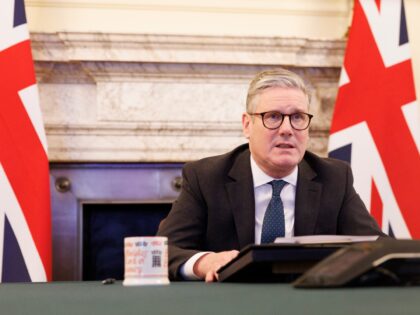
TRUMP vs PUTIN: The Dramatic Ukraine Ceasefire Standoff
— An upcoming virtual summit, led by Starmer’s “coalition of the willing,” will discuss military and financial aid for Ukraine. The meeting will also consider a peacekeeping mission if Russia agrees to talks.
About 25 countries, including European partners and Ukraine, plan to join. Notably missing is the United States, which has changed its stance on the war under President Donald Trump after his recent clash with Ukrainian President Zelenskyy in the Oval Office.
The U.S. proposed a 30-day ceasefire in Ukraine, backed by Zelenskyy but met with conditions from Putin. Secretary of State Marco Rubio expressed “cautious optimism” about Putin’s potential agreement after talks with U.S. envoy Steve Witkoff.
Starmer doubts Putin’s intentions and criticizes his delay tactics regarding Trump’s peace plan. He insists that concrete commitments are needed as Putin continues playing “pointless games” with ceasefire proposals, showing little seriousness about achieving peace.

GLOBAL SUMMIT on Ukraine: Defiant Stand Against Russia
— The upcoming virtual summit, known as the “coalition of the willing,” will focus on military and financial aid for Ukraine. Leaders from around 25 countries, including European partners, Australia, Canada, New Zealand, and Ukraine itself, will participate. NATO and EU officials are also expected to join these crucial discussions.
The meeting follows a U.S. proposal for a 30-day ceasefire in Ukraine that President Zelenskyy supports. Russian President Putin has shown conditional support but wants details clarified before agreeing. U.S. Secretary of State Marco Rubio expressed “cautious optimism” about Putin’s potential backing after meetings with envoy Steve Witkoff.
Notably absent is a representative from the United States due to a shift under President Trump’s administration compared to Joe Biden’s policies. Trump’s recent clash with Zelenskyy highlights this change in strategy towards resolving the Russia-Ukraine conflict through different means than his predecessor used.
UK leader Starmer remains skeptical about Russia’s intentions and stresses that concrete commitments are necessary as Putin engages in what he calls “pointless games” with Trump’s peace plan proposals. Starmer criticized the Kremlin’s disregard for Trump’s ceasefire proposal as evidence of Russia’s lack of seriousness about achieving peace in Ukraine.
EUROPEAN UNION in Turmoil: Defense Woes Under Trump
— European Union leaders rushed to Brussels for emergency talks, worried about U.S. support under President Donald TRUMP. They focused on boosting European security and protecting Ukraine. Friedrich Merz, Germany’s likely next chancellor, and summit chairman Antonio Costa discussed quickly strengthening Europe’s defenses.
Merz pushed for easing Germany’s debt rules to boost defense spending. Meanwhile, French President Emmanuel Macron proposed using France’s nuclear capabilities to protect Europe from Russian threats. This is a big change since Trump began disrupting U.S.-Europe security ties.
Danish Prime Minister Mette Frederiksen stressed the need for more defense spending across Europe, a big shift from past budget priorities where military funding was low. Macron promised that EU countries would increase military budgets and work together on advanced weapon production in Europe.

GREENLAND SHOWDOWN: Prime Minister’s Defiant Stand Against Trump’s Bold Move
— Prime Minister Múte Bourup Egede of Greenland has firmly stated, “Greenland is ours,” in response to President Donald Trump’s interest in buying the territory. This declaration has sparked intense discussions about territorial claims and increased tensions between the U.S. and Denmark, which currently controls Greenland.
The situation highlights the complex ties between the U.S. and Greenland, a region rich in resources and strategically important. Analysts are watching closely to see how this might affect international relations as events continue to unfold.
Global leaders are keeping a close eye on these developments, although reactions from Denmark and other countries have yet to be fully voiced. The evolving situation could present significant diplomatic challenges worldwide.

UN Chief’s SHOCKING Plea to END Global ‘Warmongers’
— On the third anniversary of Russia’s invasion of Ukraine, UN Secretary-General António Guterres criticized leaders he called “world’s warmongers.” He condemned their disregard for human rights and the suffering caused by their actions. Guterres urged an end to conflicts that worsen crises and deepen global misery.
During a press briefing, Guterres stressed the urgent need for international cooperation to address ongoing crises and restore peace. He highlighted the rise in casualties and displacement due to military conflicts. The Secretary-General emphasized leaders’ moral duty to prioritize peace over warfare.
Guterres called on member states to unite in finding diplomatic solutions to ongoing conflicts. He suggested that addressing crises like Ukraine could lead to broader global stability. His remarks highlight the dire implications of geopolitical conflicts that demand collective action for peace and security.
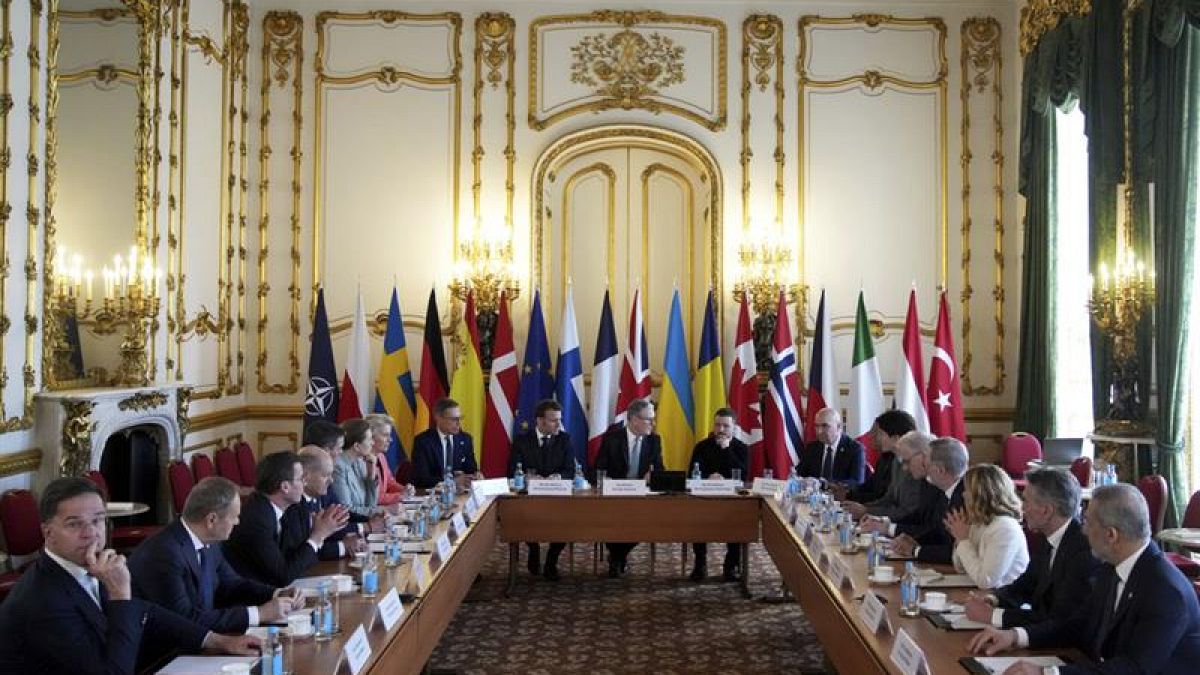
EUROPE’S Bold Move: Seizing Control in Ukraine Talks
— European leaders are eager to steer Ukraine-Russia negotiations. At a London summit, British Prime Minister Keir Starmer stressed the importance of this moment for the West. Their aim is to unify Europe’s stance as Kyiv-Washington relations worsen.
Tensions rose after Ukrainian President Zelensky met with former U.S. President Donald Trump, causing concern across Europe. The meeting reportedly alarmed European leaders who fear a change in U.S. policy could disrupt ongoing efforts in the region.
Europe wants to present a united strategy that prioritizes regional stability and security over outside influences from across the Atlantic. This move shows Europe’s intent to assert its influence and leadership in resolving the conflict effectively and independently.
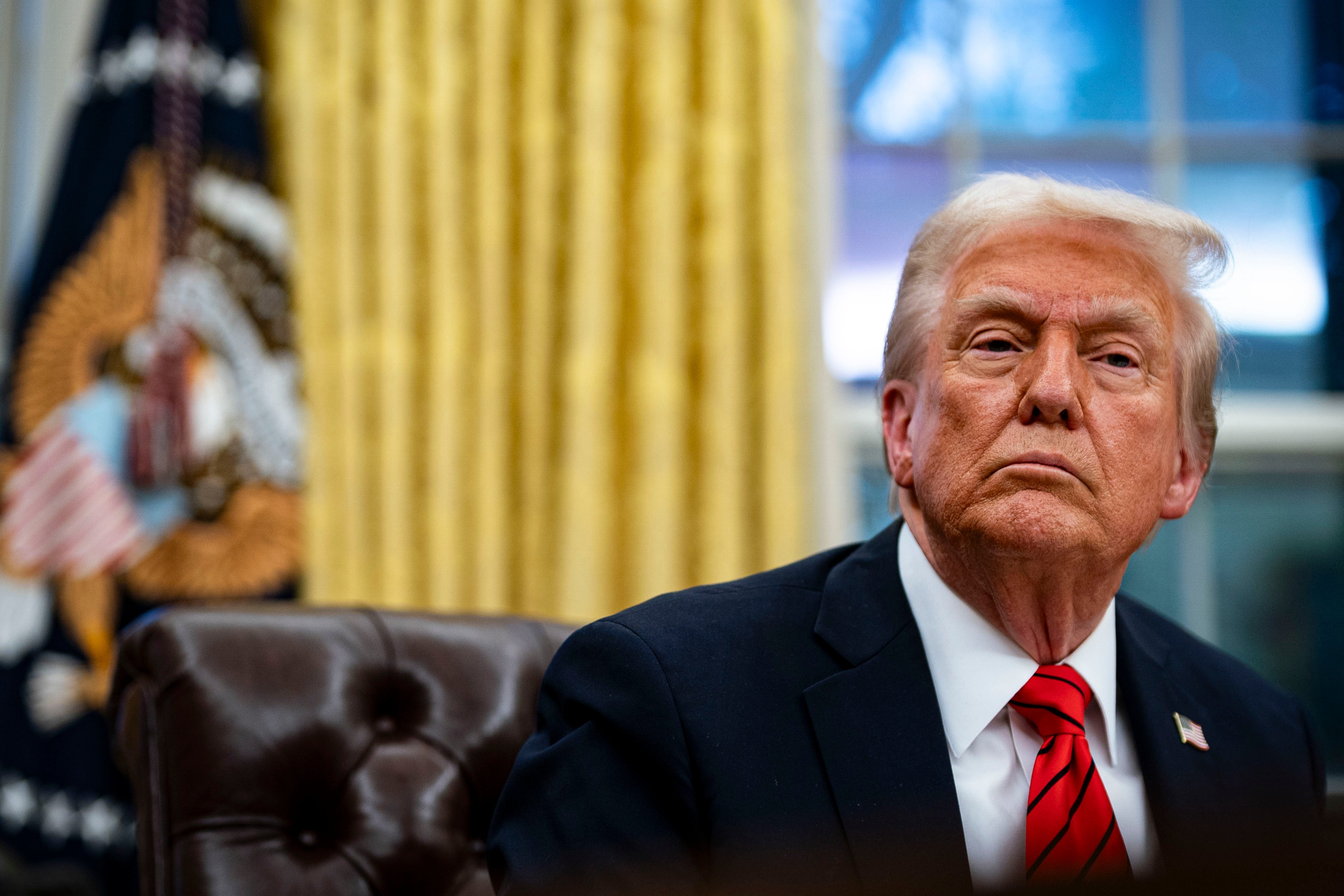
TRUMP’S BOLD Move: Meeting Putin in Saudi Arabia Sparks Debate
— Former President Donald Trump announced plans to meet Russian President Vladimir Putin in Saudi Arabia. This follows a phone call about the Ukraine conflict. Trump’s statement comes as U.S.-Russia tensions rise and peace talks continue.
Trump stressed the need to engage with global leaders to ease hostilities. He called Putin a “smart player” and suggested direct talks could lead to progress on Ukraine. Reactions are mixed, with some supporting his diplomatic approach and others criticizing potential normalization with Russia during its military actions in Ukraine.
Analysts are watching this possible meeting closely, as it might signal a shift in U.S. policy towards Russia under the current administration. The situation in Ukraine remains contentious globally, with U.S. allies backing Ukrainian forces against Russian aggression.
Trump’s remarks come amid Republican debates on future foreign policy directions and relations with Russia, highlighting differing views within the party on how best to handle international conflicts like Ukraine’s ongoing crisis.
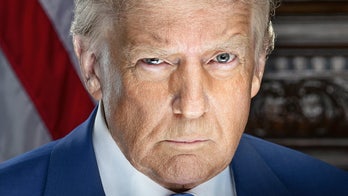
TRUMP’S Bold Return: Global Alliances Shaken
— President Donald Trump has re-entered the White House, quickly overturning Biden-era policies and pulling out of major international agreements. His actions have left global partners unsure about their standing. Allies and adversaries are closely watching how Trump’s second term will unfold on the world stage.
In his first 100 hours, Trump signed executive orders, including one labeling Mexican cartels as foreign terror organizations. Italy’s Prime Minister Giorgia Meloni met with Trump at Mar-a-Lago and attended his inauguration, supporting his push for increased NATO defense spending. Meloni is seen as a key EU contact amid fears of a potential trade war with Europe under Trump’s leadership.
Hungary’s Prime Minister Viktor Orban, a long-time ally of Trump, expressed excitement for Trump’s return to office but missed the inauguration due to scheduling conflicts. Orban sees this as an opportunity to challenge what he calls Brussels’ "left-liberal oligarchy.
Argentina’s President Javier Milei seeks stronger U.S.-Argentina relations under Trump’s presidency. At the Davos World Economic Forum, Milei hinted at leaving the Mercosur trade bloc if it means securing a new trade deal with the U.S., highlighting shifting alliances in response to Trump’s policies.

CANADA BRACES for Trump’S Trade Threats: Unity in the Face of Uncertainty
— Canadian business leaders and government officials are coming together to tackle potential tariff threats from the United States under President Donald Trump. This united front aims to protect Canadian exports during ongoing trade negotiations. The meeting highlights the importance of solidarity as Canada faces these economic challenges.
Inflation rates in Canada have recently dipped below the two percent target, adding complexity to the situation. This drop raises questions about future interest rate changes, which could affect both businesses and consumers. Business Analyst Kris McCusker suggests that these developments might lead to interest rate adjustments soon.
The outcome of U.S.-Canada trade discussions could significantly change Canadian trade dynamics, making unity among stakeholders crucial. As talks progress, Canadian leaders remain focused on protecting their economic interests while preparing for any shifts in policy or market conditions prompted by U.S. actions.

— Trump hints at military action to secure Panama Canal and Greenland The president-elect emphasized the importance of US control over both regions for national security, stating he won’t dismiss the use of force
— China’s Xi Jinping Calls for Action to Prevent Future Mass Killings The Chinese president has emphasized the need for measures to ensure that recent mass killings do not recur in the nation

— Three Mile Island Restart: A Potential Nuclear Energy Revolution The planned restart of the Three Mile Island facility signals a pivotal moment for nuclear energy amid increasing interest from Big Tech companies
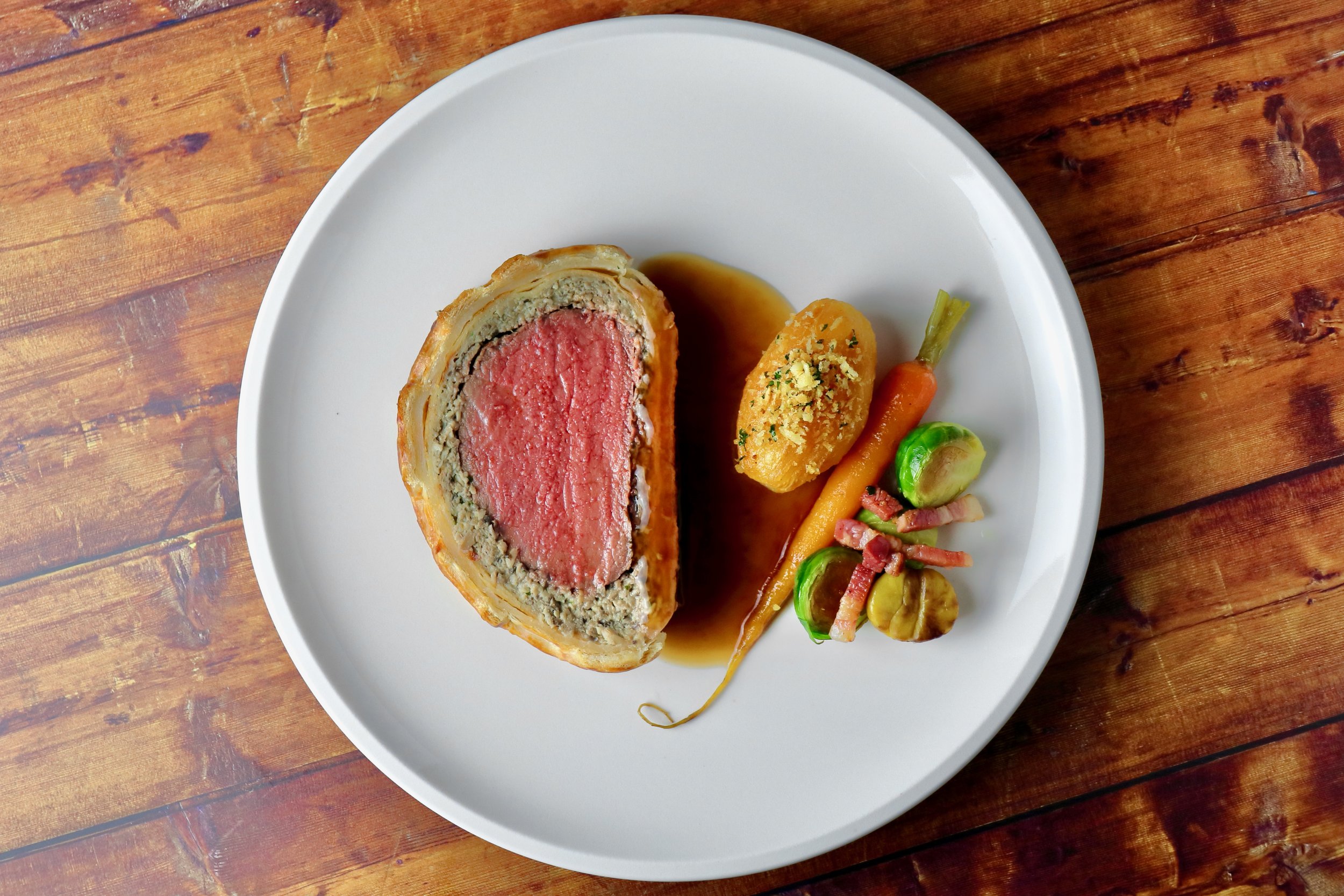
REPARATIONS Showdown: Commonwealth SUMMIT Faces Intense Debate
— Caribbean leaders are set to highlight reparations for the trans-Atlantic slave trade at the Commonwealth Heads of Government Meeting in Samoa. British Prime Minister Keir Starmer has stated that compensation is not on the agenda, but tensions are rising. King Charles III, attending despite battling cancer, may face tough discussions.
The Commonwealth’s Secretary-General Patricia Scotland noted the group’s history of tackling hard issues. Reports suggest a draft statement acknowledges calls for “reparatory justice,” though British officials reportedly opposed a separate declaration on reparations. Caribbean and African leaders are pushing hard for this topic to be addressed at the summit.
Bahamas Prime Minister Philip Davis stressed the need for an honest dialogue about historical wrongs with Starmer. He hopes to include reparations in their final communique and engage in a frank discussion on this sensitive issue.
While some nations have apologized for their role in slavery, Britain has not formally done so despite its significant involvement in the trans-Atlantic slave trade. The U.K.’s abolition of slavery came decades after outlawing the trade itself, and some British institutions are beginning to acknowledge their past ties to slavery.

NEW FIGHTER JET Program Aims to Counter China and Russia Threats
— Japan, the U.K., and Italy are teaming up to create a new combat aircraft by 2035 under the Global Combat Air Program (GCAP). This project aims to strengthen defense against threats from China, Russia, and North Korea. The advanced stealth fighter will replace Japan’s F-2s and Eurofighter Typhoons.
Japanese Defense Minister Gen Nakatani announced the creation of the GCAP International Government Organization (GIGO) by year’s end. GIGO will manage aircraft development from its base in the U.K., led by a Japanese official. This announcement came after a meeting with his U.K. and Italian counterparts at the Group of Seven defense ministers meeting in Naples, Italy.
Private companies like Japan’s Mitsubishi Heavy Industries, Britain’s BAE Systems PLC, and Italy’s Leonardo are part of this effort. Nakatani confirmed that GIGO is on track to sign its first contract next year despite leadership changes in Japan and the U.K. This partnership highlights a commitment to boosting military capabilities amid global security concerns.

— China SLAMS US for Expanding Export Control List, Promises Retaliation The Chinese government has criticized the United States for adding more companies to its export control list and has vowed to take countermeasures

NATO SUMMIT In DC: Biden’s RE-Election Doubts Shake Ukraine Support
— World leaders are heading to Washington, D.C., this week for a historic NATO summit as uncertainty rises over continued U.S. support for Ukraine. The summit marks the 75th anniversary of the alliance’s founding and comes amid skepticism about President Biden’s re-election chances and their impact on Ukraine’s war with Russia.
Key issues on the agenda include Ukraine’s success in its war with Russia, its future within NATO, and how the alliance plans to bolster collective defense. The U.S. has been a major supporter of Ukraine, providing significant aid, sparking debate over whether this level of support can continue under a different presidency.
Former President Donald Trump has not clarified what U.S. involvement with NATO would look like if he wins a second term, leaving questions about future American support for the alliance and Ukraine unanswered. Experts believe Trump is unlikely to pull out of NATO altogether but note that the alliance is taking steps to safeguard its support for Ukraine should Washington reduce its involvement.
— Putin and Kim Jong Un Declare Strategic Partnership a Breakthrough Russian President Putin and North Korean leader Kim Jong Un hail their signed strategic partnership as a significant breakthrough
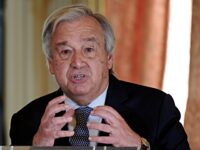
UN Chief BLASTS Fossil Fuel Industry for CLIMATE Chaos
— In a fiery speech in New York City, U.N. chief Antonio Guterres accused the fossil fuel industry of causing climate chaos while reaping record profits. He labeled climate change as a “stealth tax” on everyday people and vulnerable communities.
Guterres warned that the world is on a “highway to climate hell” and likened current actions to playing Russian roulette with our planet. He criticized the fossil fuel industry’s greenwashing efforts and their attempts to delay climate action through lobbying and legal threats.
The U.N. leader also targeted advertising and PR firms, comparing them to characters from Mad Men, for aiding fossil fuel companies in their destructive practices. He urged these firms to stop taking new fossil fuel clients immediately and plan to drop existing ones.
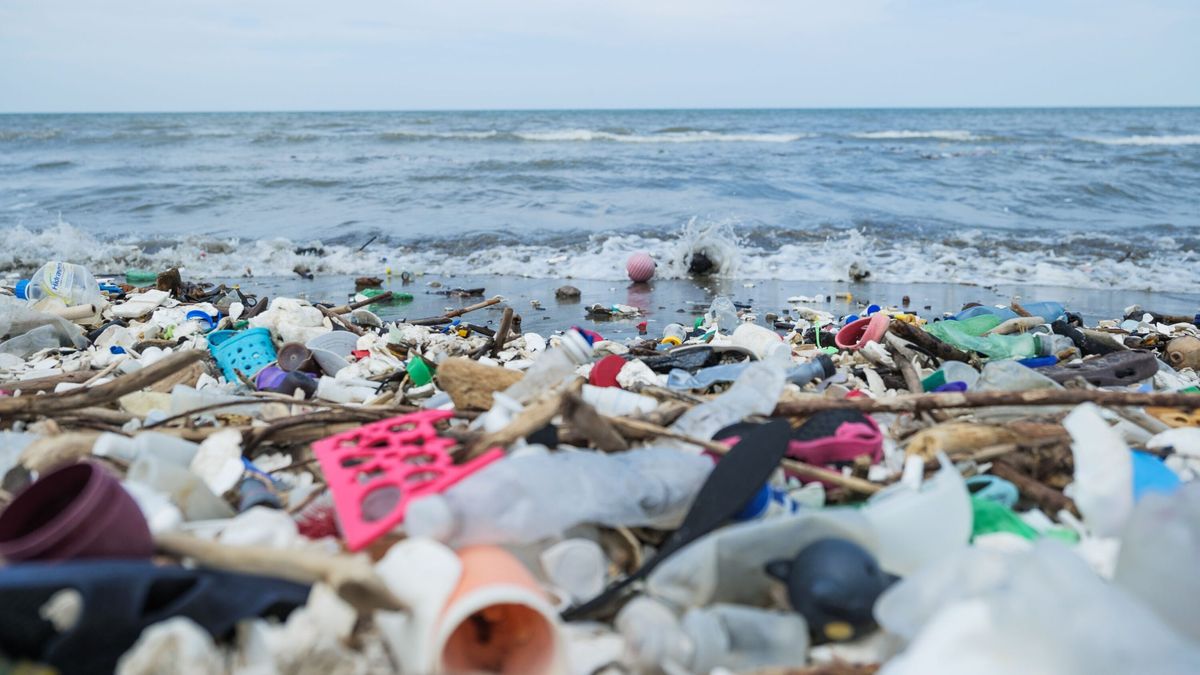
PLASTIC WARFARE: Nations Clash Over New Global Treaty in Ottawa
— For the first time, global negotiators are crafting a treaty aimed at ending plastic pollution. This marks a significant shift from mere discussions to actual treaty language. The talks are part of the fourth in a series of five international plastics summits.
The proposal to limit global plastic production is causing friction among nations. Plastic-producing countries and industries, particularly those linked to oil and gas, strongly oppose these limits. Plastics primarily derive from fossil fuels and chemicals, intensifying the debate.
Industry representatives advocate for a treaty that emphasizes plastic recycling and reuse rather than production cuts. Stewart Harris of the International Council of Chemical Associations highlighted the industry’s commitment to cooperate on implementing such measures. Meanwhile, scientists at the summit aim to counteract misinformation by providing evidence on plastic pollution impacts.
The final meeting is set to address unresolved issues around plastic production limits before concluding negotiations on this groundbreaking treaty. As discussions continue, all eyes are on how these contentious points will be resolved in the upcoming final session.
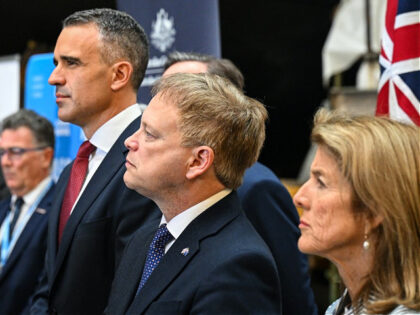
JAPAN Strengthens WESTERN Ties: Set to Boost Aukus Alliance
— During a notable visit to Washington, Japanese Prime Minister Kishida Fumio hinted at Japan’s upcoming role in the AUKUS alliance. Reports suggest Japan is “cleared to join,” marking a significant step in defense collaborations between Japan and Western powers.
The AUKUS alliance aims to enhance Australia’s submarine capabilities and is now eyeing Japan for its advanced technology program. This includes electronic warfare and AI development, with UK Defense Secretary Grant Shapps hinting at high-tech cooperation with Japan.
Japan’s entry into the alliance is poised to advance military technologies like hypersonic missiles and cyber defense systems. Prime Minister Kishida emphasized the importance of U.S.-Japan collaboration on emerging technologies during his Congress address, highlighting its role in global security dynamics.
This expansion signifies a major leap in uniting Western defense efforts against global threats, promoting peace and stability through technological advancement and strategic cooperation among these nations.
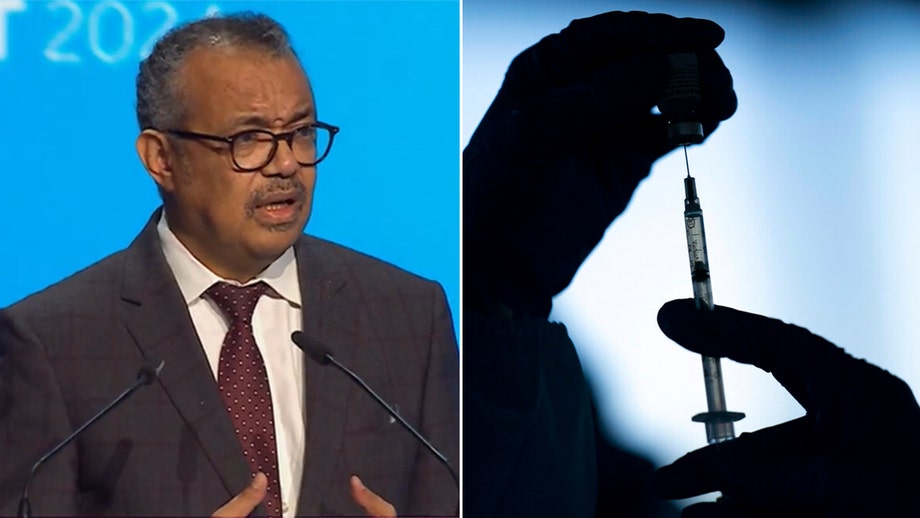
WHO Chief SOUNDS Alarm on ‘Disease X’: The Inevitable Threat We’re Not Ready For
— World Health Organization (WHO) Director-General, Tedros Ghebreyesus, has issued a stark warning about the looming threat of “Disease X”. Speaking at the World Government Summit in Dubai, he stressed that another pandemic is not just likely — it’s inevitable.
Tedros, who accurately predicted a similar outbreak in 2018 before COVID-19 hit, criticized the world’s lack of readiness. He dismissed any doubts that his call for a global treaty by May was simply an effort to expand WHO’s influence.
Tedros labels the proposed treaty as “mission critical for humanity”. Despite some advancements in disease surveillance and vaccine production capabilities, he maintains that we are still ill-prepared for another pandemic.
Reflecting on COVID-19’s severe impact, Tedros underscored the urgency of addressing this issue. The world is still wrestling with social, economic and political aftershocks from the ongoing pandemic.
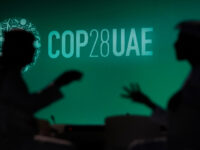
OIL TYCOONS Rule COP28: A Shocking Paradox or a Bold Leap for Climate Goals?
— The forthcoming COP28 climate summit, to be held in the United Arab Emirates (UAE), is stirring up a storm of controversy. Critics are questioning the seemingly ironic choice of Sultan Ahmed Al Jaber, CEO of UAE’s state oil company, as the event’s overseer.
UK Guardian columnist Marina Hyde has expressed concerns about this decision. She compares it to China’s temporary factory closures during the 2008 Olympics for cleaner air. She questions whether UAE will also pause its gas flaring operations during the conference.
Climate advocates fear that powerful politicians and industrialists could twist climate policies for personal gain. These fears are amplified by reports that Al Jaber and UAE may exploit COP28 to broker oil and gas deals with other nations.
Despite these apprehensions, some believe that involving major oil producers is key to meeting climate objectives. But with President Joe Biden absent and protests pushed to distant locations, doubts over COP28’s effectiveness continue to mount.
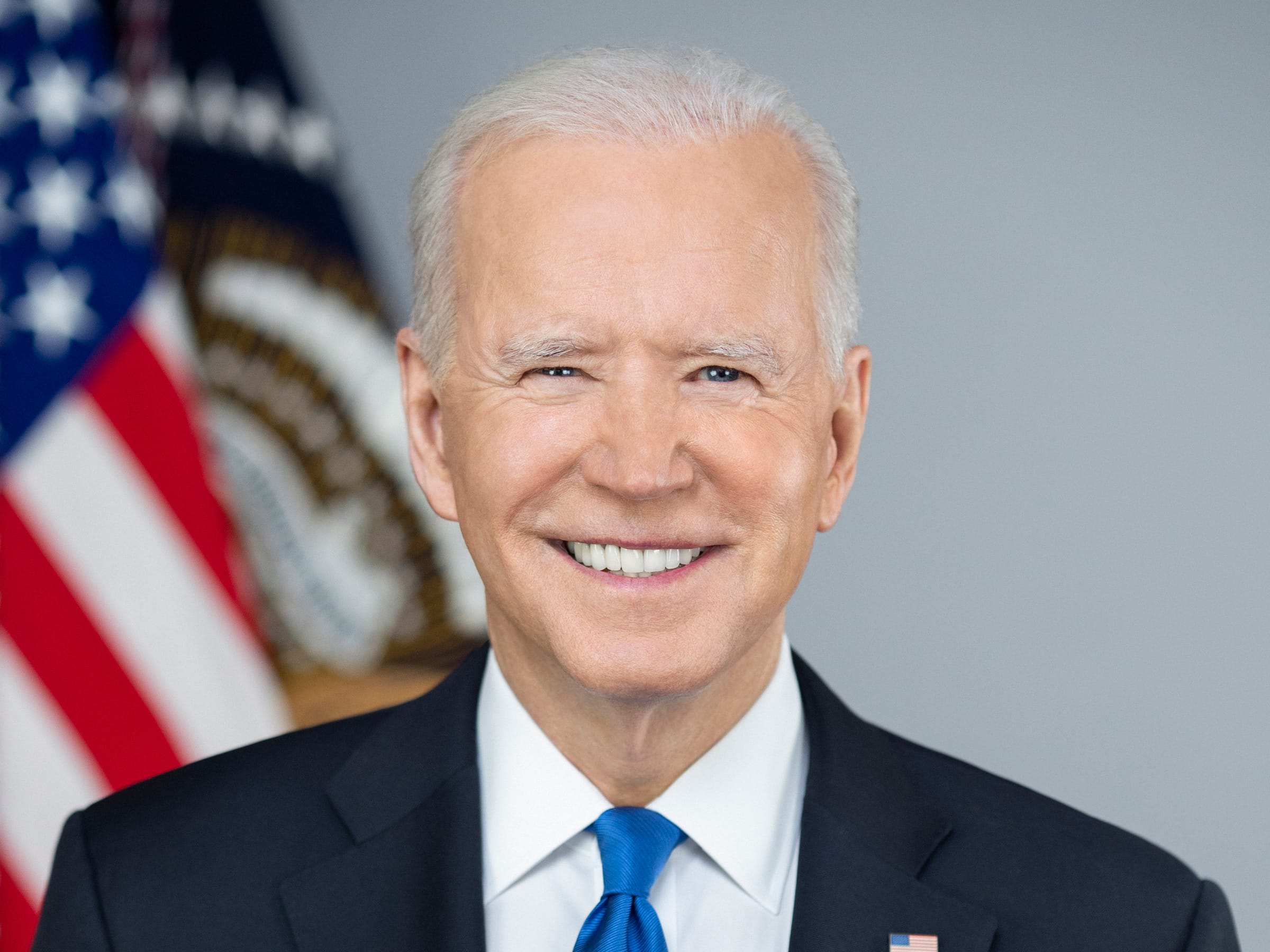
BIDEN-XI Summit: A Bold Leap or a Blunder in US-China Diplomacy?
— President Joe Biden and Chinese President Xi Jinping have committed to keeping direct lines of communication open. This decision follows their lengthy four-hour discussion at the 2023 APEC summit in San Francisco. The leaders unveiled an initial agreement aimed at halting the influx of fentanyl precursors into the U.S. They also plan to restore military communications, which were cut off after China’s disagreement with the Pentagon following Nancy Pelosi’s visit to Taiwan in 2022.
Despite rising tensions, Biden made efforts during Wednesday’s meeting to strengthen U.S.-China relations. He also vowed to persistently challenge Xi on human rights issues, arguing that frank discussions are “critical” for successful diplomacy.
Biden voiced positivity about his rapport with Xi, a relationship that began during their vice-presidential terms. However, uncertainty looms as a congressional investigation into COVID-19 origins threatens US-China relations.
It is unclear whether this renewed dialogue will result in substantial progress or further complications.
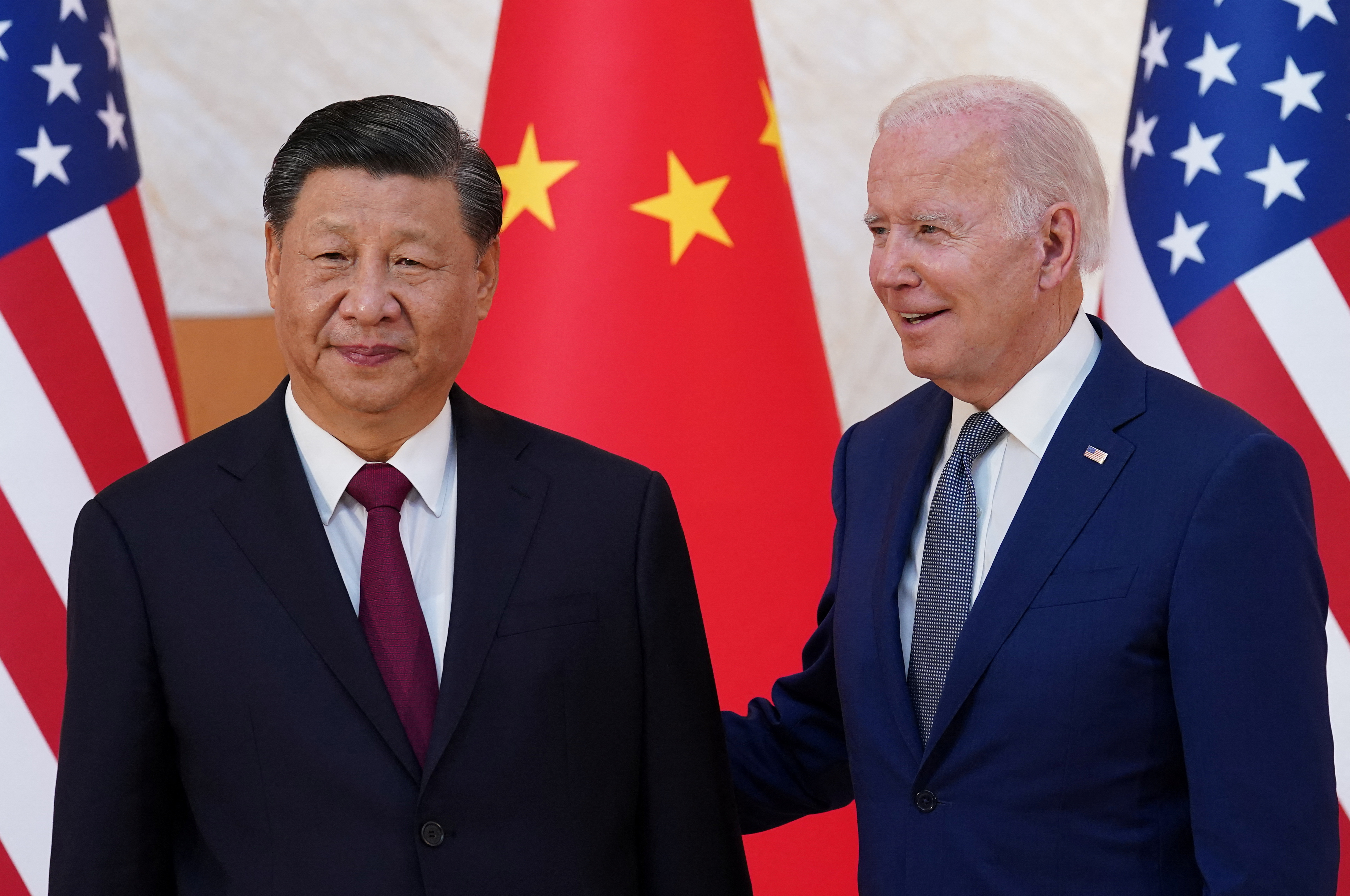
BIDEN and XI: Critical Trade Talks Amid Escalating Tensions
— President Joe Biden is scheduled to meet with Chinese President Xi Jinping in California this Wednesday. This marks their first rendezvous in a year, amidst the backdrop of strained U.S.-China relations. The world’s two largest economies will put trade and Taiwan at the forefront of their discussions.
The White House has been alluding to this meeting for some time now. It will occur on the fringes of the Asia-Pacific Economic Cooperation summit in San Francisco. Both leaders are aiming to “responsibly manage competition” and collaborate where mutual interests overlap.
Meanwhile, Treasury Secretary Janet Yellen has been engaging with Chinese Vice Premier He Lifeng for a second day of dialogue on Friday. Yellen underscored America’s aspiration for a robust economic relationship with China, while also urging Beijing to take action against firms suspected of circumventing sanctions to transact with Russia.
Yellen additionally expressed apprehensions about China’s export controls on graphite – an essential component in electric vehicle batteries – amidst escalating tensions between the nations that could see thousands protesting during the summit.

Video
GLOBAL ELECTIONS Shock: What’s at Stake for Iran, Britain, and France
— Over the next week, voters in countries like Iran, Britain, and France will head to the polls. These elections come at a critical time with global tensions high and public concerns over jobs, climate change, and inflation.
In Iran, Supreme Leader Ayatollah Ali Khamenei seeks a successor for President Ebrahim Raisi following his recent death. Candidates include hard-liners Saeed Jalili and Mohammad Bagher Qalibaf as well as reformist Masoud Pezeshkian.
These elections could significantly impact global politics amid ongoing wars in Europe, the Middle East, and Africa. The outcomes may reorient international relations during this period of mutual suspicion among major powers.
More Videos
Invalid Query
The keyword entered was invalid, or we couldn't gather enough relevant information to construct a thread. Try checking the spelling or entering a broader search term. Often simple one-word terms are enough for our algorithms to build a detailed thread on the topic. Longer multi-word terms will refine the search but create a narrower information thread.


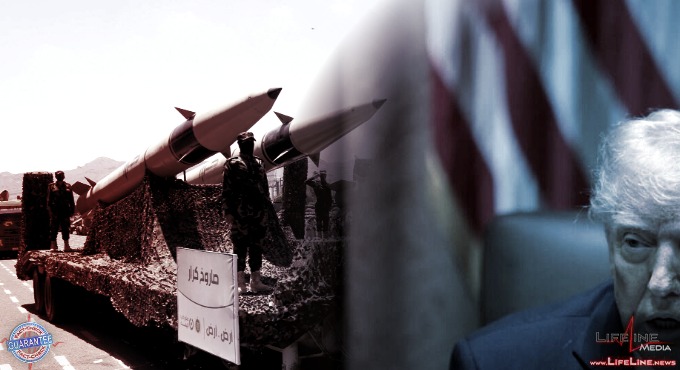
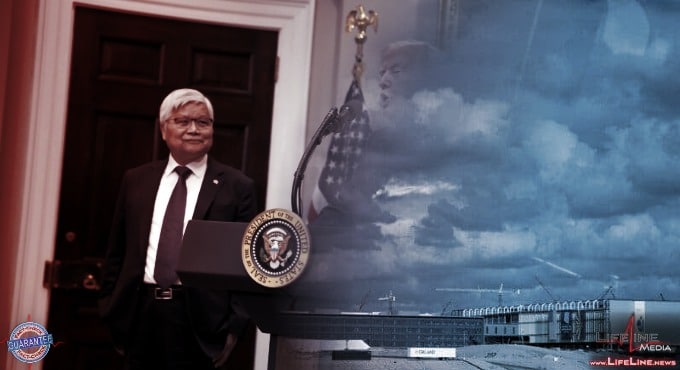

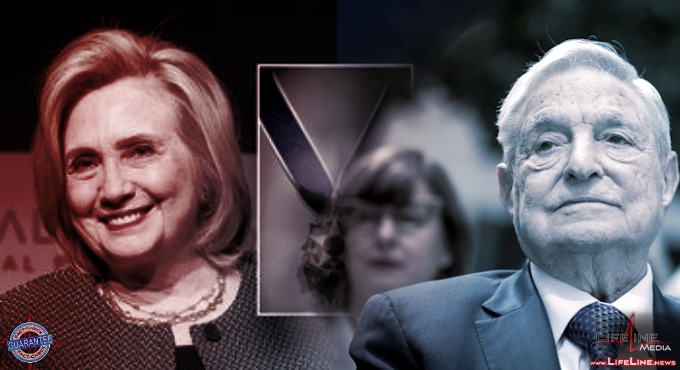
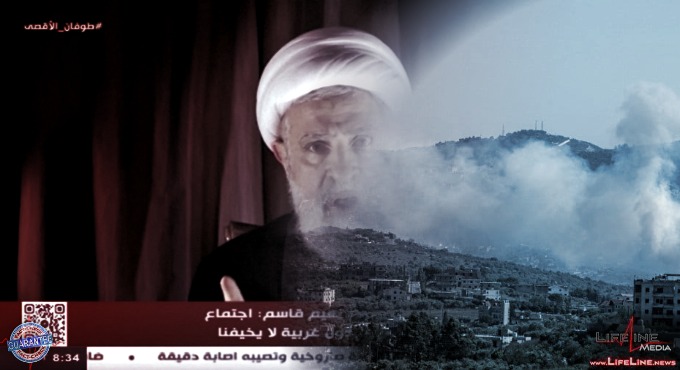
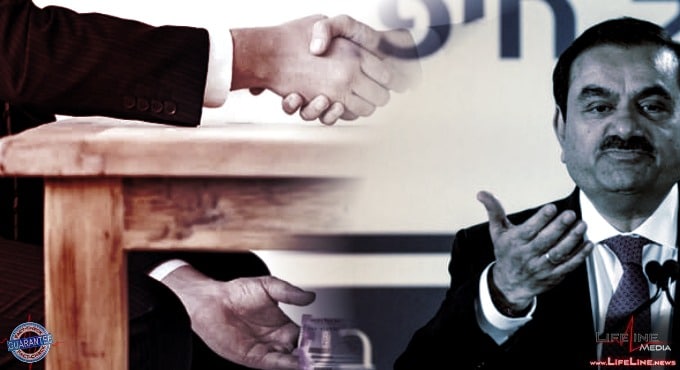
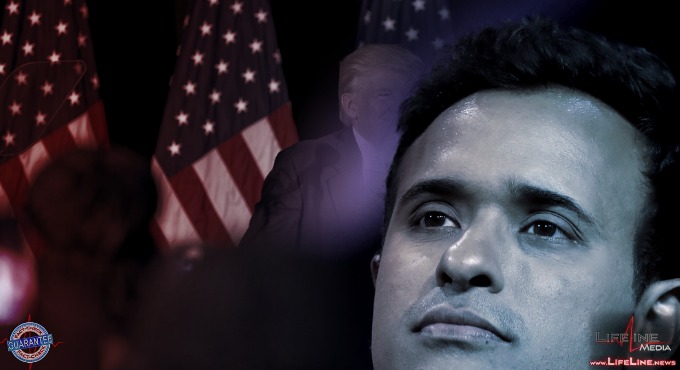
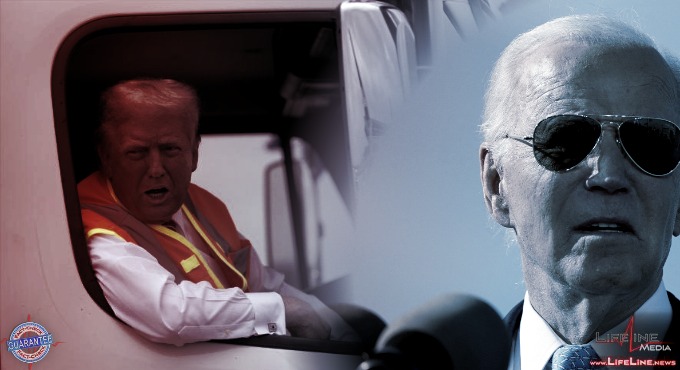
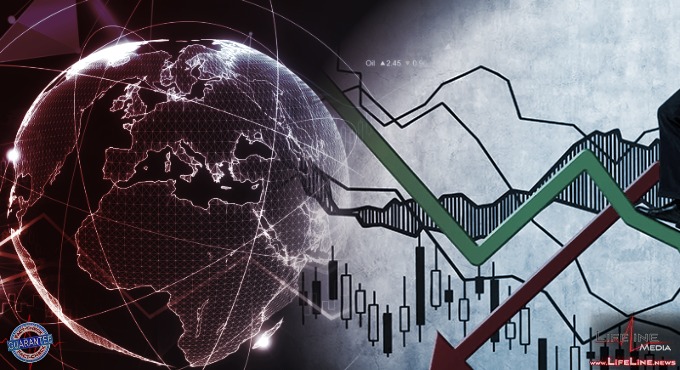
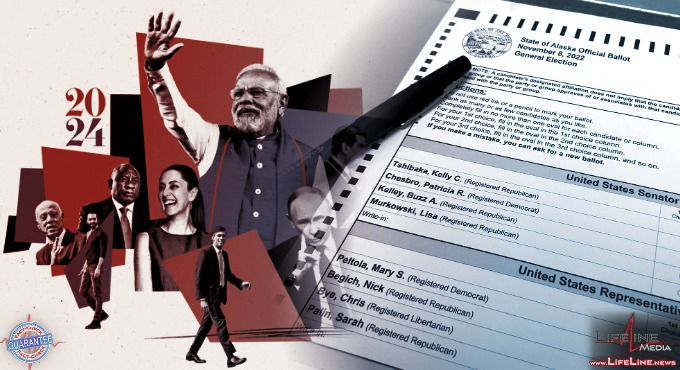
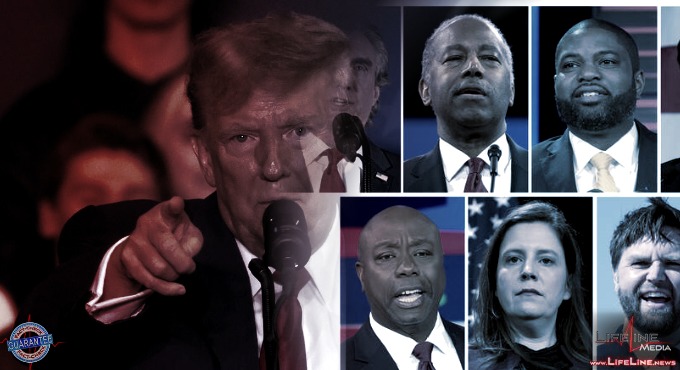
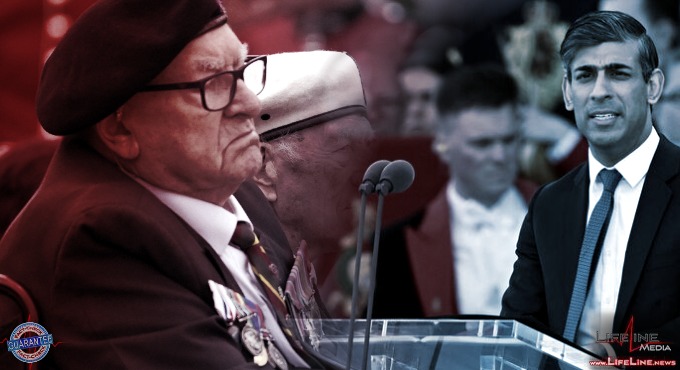

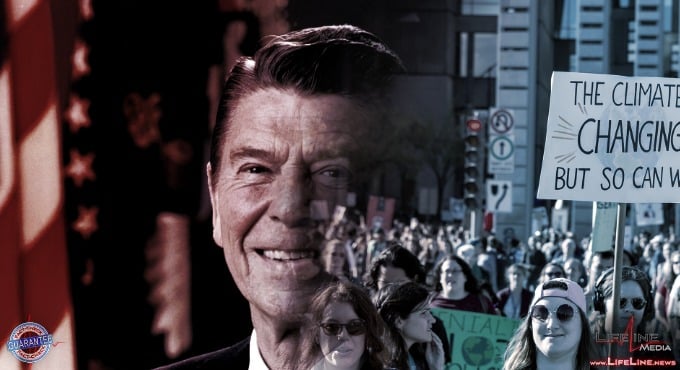
Social Chatter
What the World is SayingThe MSCI World Index captures large and mid-cap representation across 23 Developed Markets (DM) countries*. With 1,396 constituents, the index covers ...
. . .NATO V/S NATO! France to USA: Hands Off Greenland! Trump Blames Biden For Ukraine War! World Affairs. NATO V/S NATO! France to USA: Hands Off Greenland! Trump Blames Biden For Ukraine War! World Affairs 1 - Last 2 Hours Left, FLAT 60% Off on all UPSC Subs with Assured Success (CSE Assure): ...
. . .NATO V/S NATO! France to USA: Hands Off Greenland! Trump Blames Biden For Ukraine War! World Affairs. NATO V/S NATO! France to USA: Hands Off Greenland! Trump Blames Biden For Ukraine War! World Affairs 1 - Last 2 Hours Left, FLAT 60% Off on all UPSC Subs with Assured Success (CSE Assure): ...
. . .Consultative Meeting Re: S. No. 890 (January 7, 2025). Consultative Meeting Re: S. No. 890 (January 7, 2025) Agenda: S. No. 890 - Rightsizing the National Government Act of 2022 (By: Sen. Escudero)
. . .Consultative Meeting Re: S. No. 890 (January 7, 2025). Consultative Meeting Re: S. No. 890 (January 7, 2025) Agenda: S. No. 890 - Rightsizing the National Government Act of 2022 (By: Sen. Escudero)
. . .